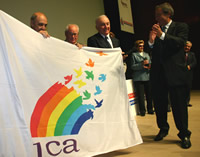

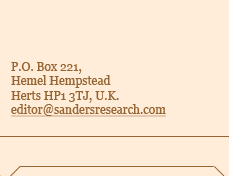
|
|
| Feedback |
|---|
Real Resources Review: A little makes a lot?I sent John Busby's 7th August article to a friend who understands more about nuclear power than I do. His reaction was that 'Mr Busby is not conversant with the concept of pebble bed reactors'. I would like to ask Mr Busby how he views that technology and whether he would care to tackle it in an article for the uninitiated like myself? Kind regards, Paddy Imhof
The problem is that mining of uranium is running down, whatever form of reactor is envisaged. See Die Welt which reports the imminent closure of some of the French reactors due to fuel shortages. The thorium alternative and fast breeders are dependent on vast development programmes which with the rapid and progressive failure of the nuclear industry will never be funded. As far as the pebble bed reactor is concerned it depends on the integrity of the pebbles and as these contain graphite this is likely to lead to the demise of this technology. The seven UK AGR's are likely to close prematurely as the graphite moderator blocks are disintegrating due to the irradiation which causes structural breakdown. Also there is an overheating due to the Wigner Energy effect which leaves a residual heat in the graphite. The gas-cooled fast reactor is also an unlikely candidate for funding for this reason as it relies on graphite moderation. The nuclear lobby in desperation is arguing that uranium can be extracted from the earth's crust and seawater and looks to fast breeders to generate ever more plutonium. All of which is fantasy. We do not have to wait too long for some of the
lights to go out in France, which will hopefully lead to a reality
check! |

| Why a democratic economy would be a more efficient economy, Part I |  |
 |
| By Jon Rynn | |
| Jan/08/2007 | |
|
The waste-industrial-complex
Even not counting Iraq or expenses outside the Department of
Defense, next year’s military budget will be $550 billion, most of
which is unnecessary. The dictatorship of the CEOs Most firms are hierarchical, that is, there is one top manager, often called the CEO, who is in effect a dictator. He -- usually a he -- determines who will fill the ranks of managers underneath him, which means that all of those managers are more focused on pleasing the CEO than helping the firm. The CEO can reward himself with whatever resources he wants, to the detriment of the firm (and society). The managers under the CEO all strive to increase their departmental head count in an effort to show that they are more important than their peers, in an attempt to convince the CEO that they should be promoted before the others. Those managers, and the CEO as well, hire as many people as they can to help them in their internal struggle for power. The goal of the upwardly mobile manager is to claim more power, and only secondarily to increase the firm’s profits. Many of the people in these staffs serve police functions over the people who actually produce the goods and services of the firm. All of this behavior leads to larger and larger administrative staffs. The late Seymour Melman called this “the expansion of profits/power without limit”. Administrative overkill The dynamics of a democratic firm are very different than the dynamics of a dictatorial one, just as the dynamics of a democratic polity are different than those of a dictatorship. In a firm which is owned and controlled by all of its employees, the CEO is usually elected indirectly by a directly elected governing council. While, just as in a democracy, the head of state still has enormous power, in a democratic firm, the CEO is constrained from rewarding himself with the lavish lifestyle and staff that is business as usual for your average CEO. The democratically-elected CEO must consider the needs of his employees, and even the needs of the community in which the employees live, if he is to retain the confidence of his electorate. When a hierarchy is top-down, information has a tendency not to flow from the bottom up. Since the main goal of employees is to satisfy the manager, not benefit the firm, information which contradicts the opinions of the manager will not reach the manager. Thus, the organization has difficulty adapting to new environments, and loses much of its ability to improve its own operations and innovate. In a democratic firm, on the other hand, the employees are given more responsibility; they are not required to stop and wait for a manager to approve a new course of action; they feel freer to point out problems and suggest new procedures. There is also evidence that production lines are more stable when workers have more decision-making power, leading to greater productivity.[3] The democratic firm is more productive than the dictatorial one. In an efficient society, it would be much more productive if all firms were democratic, not dictatorial. Not only would the number of employees necessary to produce goods and services be smaller, but the quality of the goods and services would improve.
Why did this happen in the northeast corner of Spain? Spain has a long tradition of syndicalism, the ownership of the firms by their employees. However, there may be a special reason that the Basques are able to pull this off, however. In his book “Against the Grain”, Richard Manning argues that the Basque people of Spain can be linked linguistically to the Cro-Magnon peoples of prehistoric Europe, who drew the painting in the caves of Lascaux and dominated Europe until the arrival of the grain people of the Caucasus and Middle East.[5] Throughout most of history, agriculture has involved backbreaking labor and often, according to the archaeological evidence, a hard life.
The bank, known as the Working People’s Bank, helps new co-ops to become established, or helps to maintain or expand the existing businesses. The Bank therefore serves as a central unifying force in the group, much like the banks within the Japanese keiretsu, helping with technical advice as well as financial aid. The system of co-ops expanded from about 25,000 workers in 1992 to its present 78,000. 81% of the employees within the Basque region are members of the co-ops, but because they expanded so rapidly, almost half of their employees who are not in the Basque region are not members. The MCC believes that potential members in nonBasque regions have to build up an understanding of the co-op culture before they let them become permanent members. Since training is a huge part of the Mondragon system (there are 4,000 students at their own university), they are starting to train nonBasques in a “participative enterprise” model, as they put it.
[1]
“Comparable International
Rates of Incarceration: An examination of causes and trends”,
presented to the U.S. Commission on Civil Rights, Marc Mauer, The
Sentencing Project, 2006 |
 |
| Register Free to receive updates of latest stories |
|---|
| Polls |
|---|

 The fossil
fuel-based economy is unsustainable, both because the fossil fuels
themselves will eventually become scarce, and because burning fossil
fuels will change climate in large and unpredictable ways. Fossil
fuels are a “miracle” substance: they allow for a civilizational
structure of technologies, lifestyles and economic processes that
are very wasteful, and their disappearance will make such wasteful
structures impossible to maintain.
The fossil
fuel-based economy is unsustainable, both because the fossil fuels
themselves will eventually become scarce, and because burning fossil
fuels will change climate in large and unpredictable ways. Fossil
fuels are a “miracle” substance: they allow for a civilizational
structure of technologies, lifestyles and economic processes that
are very wasteful, and their disappearance will make such wasteful
structures impossible to maintain.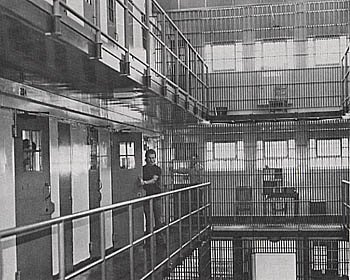
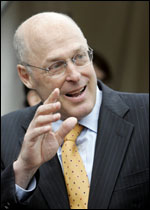 The
second, and for most of the world, most important source of waste is
the dictatorial way in which firms are organized. If the economy was
composed of firms in which all employees were owners and
decision-makers, we would be in a much better position to dispense
with fossil fuels.
The
second, and for most of the world, most important source of waste is
the dictatorial way in which firms are organized. If the economy was
composed of firms in which all employees were owners and
decision-makers, we would be in a much better position to dispense
with fossil fuels.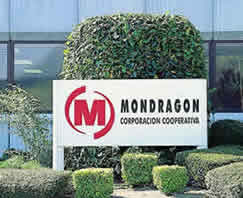 The world
according to Mondragon
The world
according to Mondragon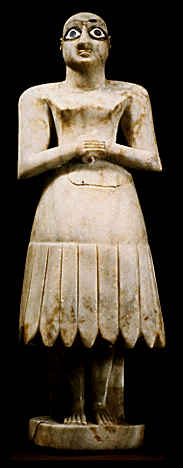 Agricultural
societies are where hierarchies first became established. Whether
this happened from necessity, imposition from outside, or both, one
can not know; but the result was that a grain surplus was created by
the unfortunate field workers which the elite used to keep
themselves and their military compatriots in fine fettle.
Effectively, the poor peasants were forced to create the food to
feed their masters. A priest class emerged to create religions to
try and convince the masses that servitude was what the gods wanted;
today, neoclassical economists serve essentially the same function.
So perhaps it is ironic that a priest helped to create the greatest
experiment in workplace democracy in modern history in the Basque
city of Mondragon. Basically, each member of the group of
co-operatives owns a share in his or her co-op, which the
member invests in with their own money or from money borrowed from
the Bank, and this share is not transferable to anybody else. If the
member leaves, they can take the accrued profits that have been
deposited in their account over the years, but they do not take
their share with them. This way, outside absentee owners can not
take over the co-ops. The members elect the governing council for
their co-op; there are 650 members of the Co-operative Congress that
are delegated by the individual members, and there is also the
General Assembly of all members who collectively elect the Governing
Council of the MCC, which picks the top managers.
Agricultural
societies are where hierarchies first became established. Whether
this happened from necessity, imposition from outside, or both, one
can not know; but the result was that a grain surplus was created by
the unfortunate field workers which the elite used to keep
themselves and their military compatriots in fine fettle.
Effectively, the poor peasants were forced to create the food to
feed their masters. A priest class emerged to create religions to
try and convince the masses that servitude was what the gods wanted;
today, neoclassical economists serve essentially the same function.
So perhaps it is ironic that a priest helped to create the greatest
experiment in workplace democracy in modern history in the Basque
city of Mondragon. Basically, each member of the group of
co-operatives owns a share in his or her co-op, which the
member invests in with their own money or from money borrowed from
the Bank, and this share is not transferable to anybody else. If the
member leaves, they can take the accrued profits that have been
deposited in their account over the years, but they do not take
their share with them. This way, outside absentee owners can not
take over the co-ops. The members elect the governing council for
their co-op; there are 650 members of the Co-operative Congress that
are delegated by the individual members, and there is also the
General Assembly of all members who collectively elect the Governing
Council of the MCC, which picks the top managers.